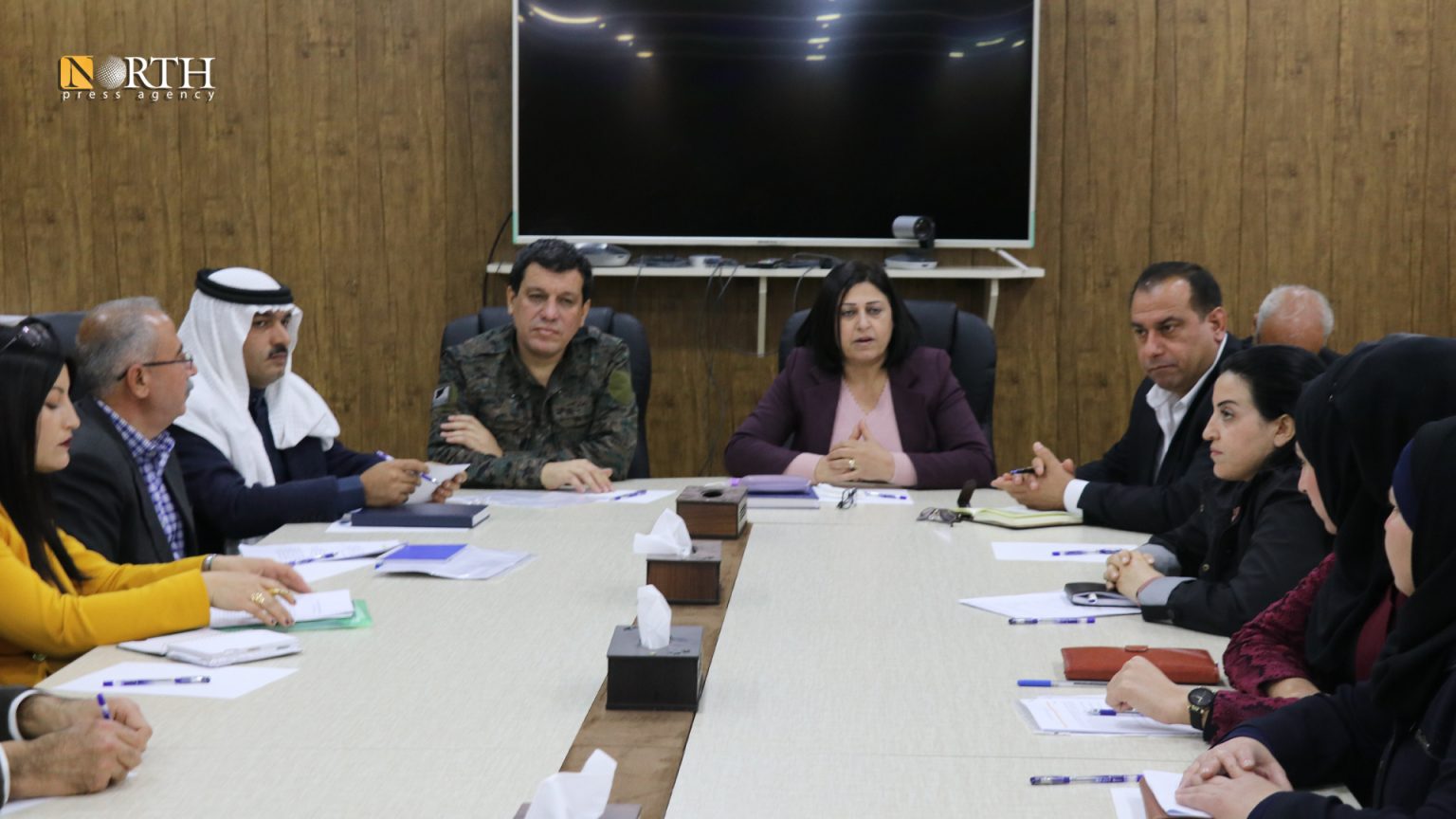Jazira and Euphrates Conference: No one to be arrested without prosecutor permission
HASAKAH, Syria (North Press) – On Thursday, Thabet al-Jawhar, a member of the follow-up committee emanating from the National Conference for the People of Jazira and the Euphrates, said that their committee “decided that no party has the right to arrest a civilian or raid any place without permission from the public prosecutor.”
In late November last year, the Syrian Democratic Council held the National Conference for the People of Jazira and the Euphrates, followed by the formation of a committee to follow up on the implementation of the decisions of the conference.
The follow-up committee emanating from the conference of the Syrian Democratic Council for the people of Jazira and the Euphrates held its third meeting, which discussed the security, administrative, and service situation in northeast Syria.
“The investigation period for civil cases is 48 hours, and it may extend to 15 days,” al-Jawhar added.
“With regard to terrorism cases, the period of investigation has been limited to a week and may be extended for a month.”
Al-Jawhar’s speech came on the margin of the third meeting of the committee, which was held in the city of Hasakah.
Each of the security, administrative, and economic committees read their own reports during the meeting.
The official website of the Syrian Democratic Council reported that the meeting discussed “combating corruption, approving consumer protection laws, and assigning the Central Supervisory Authority to do what is necessary in this regard.”
During their first meeting, the committee members approved the formation of three sub-committees to follow up on security, administrative, and economic matters in the Autonomous Administration areas.
He pointed out that “they have made a decision to create offices within the headquarters of the Internal Security Forces and social justice councils, through which the status of any arrested or missing people in the regions of northeast Syria is indicated.”
“Such meetings are to provide visions to make laws” and show “remarkable progress in the work of the committee,” according to a member of the committee.

